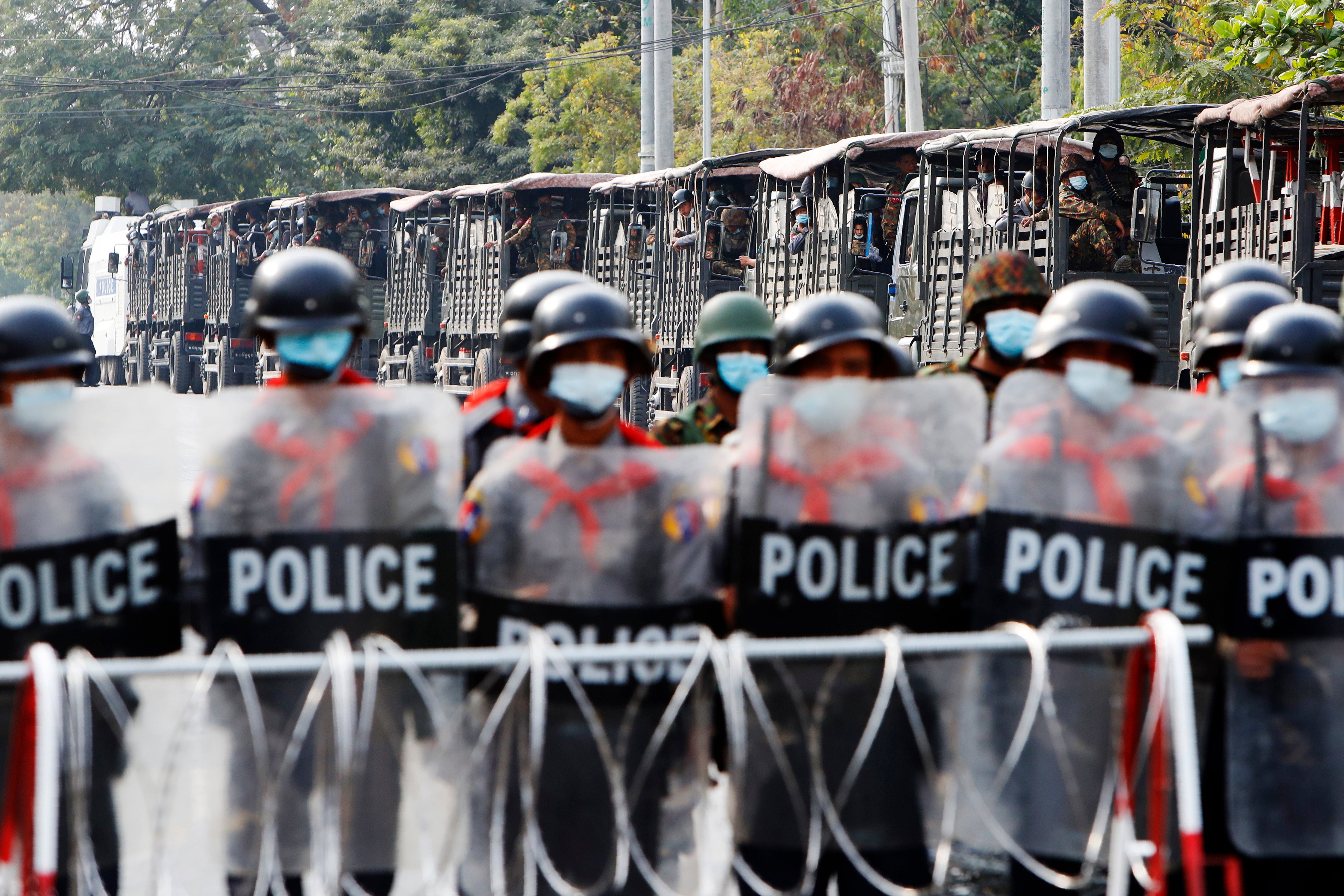New Zealand won't engage Myanmar in largest free trade bloc
New Zealand says it will not deal with Myanmar under a major 15-nation trade agreement, the world’s largest that took effect this year, citing the deadly violence and democratic setbacks in the Southeast Asian country after the military seized power

Your support helps us to tell the story
From reproductive rights to climate change to Big Tech, The Independent is on the ground when the story is developing. Whether it's investigating the financials of Elon Musk's pro-Trump PAC or producing our latest documentary, 'The A Word', which shines a light on the American women fighting for reproductive rights, we know how important it is to parse out the facts from the messaging.
At such a critical moment in US history, we need reporters on the ground. Your donation allows us to keep sending journalists to speak to both sides of the story.
The Independent is trusted by Americans across the entire political spectrum. And unlike many other quality news outlets, we choose not to lock Americans out of our reporting and analysis with paywalls. We believe quality journalism should be available to everyone, paid for by those who can afford it.
Your support makes all the difference.New Zealand said Thursday it will not deal with Myanmar under a major 15-nation trade agreement, the world's largest that took effect this year, citing the deadly violence and democratic setbacks in the Southeast Asian country after the military seized power last year.
Two Asian diplomats told The Associated Press that New Zealand notified other members of the Regional Comprehensive Regional Partnership, which includes China but not the United States, that it would not recognize Myanmar’s “instrument of ratification” — the key document binding a country to the free trade pact — because it opposes its military-led government.
It’s not immediately clear if New Zealand’s action would lead to Myanmar’s exclusion from RCEP.
Myanmar’s army wrested power from Aung San Suu Kyi’s elected government in Feb. 1 last year in a takeover that sparked widespread street protests and civil disobedience. About 1,500 civilians have been killed by security forces, according to the Assistance Association for Political Prisoners. Suu Kyi, 76, remains in detention with other ousted officials and faces a raft of charges that human groups say are baseless.
New Zealand was among Western nations that quickly opposed the takeover, suspending all military and high-level political contacts with Myanmar and calling on army leaders to immediately release all political leaders and restore civilian rule. It also placed a travel ban on Myanmar’s generals.
Asked by the AP for comment, a spokesperson for the Ministry of Foreign Affairs and Trade said “New Zealand has maintained a principled stance on Myanmar, and this includes our position that the Regional Comprehensive Economic Partnership does not apply between New Zealand and Myanmar at this time.”
“New Zealand remains gravely concerned at the situation in Myanmar and continues to call for the immediate cessation of violence and for the release of all those arbitrarily detained by the military regime,” the spokesperson said.
The punitive action underscores the growing fallout from the Myanmar crisis into the economic and diplomatic spheres. It remains unclear if other leading countries included in the RCEP, such as Japan, Australia and the 10 members of the Association of Southeast Asian Nations, which have also expressed alarm over Myanmar, would follow suit.
One of the two diplomats who spoke with the AP said ASEAN member states were individually assessing New Zealand’s action and may announce their position soon. The diplomats spoke on condition of anonymity due to a lack of authorization to discuss the issue publicly.
ASEAN foreign ministers were meeting in the Cambodian capital of Phnom Penh on Thursday to discuss regional issues, including Myanmar. It's unclear if New Zealand’s move against Myanmar would be raised, but the diplomat described the issue as “a big problem.”
Myanmar, an ASEAN member, did not attend the meeting in Phnom Penh in a protest over the regional bloc’s demand that it send a non-political representative instead of its military-appointed top diplomat, Foreign Minister Wunna Maung Lwin.
ASEAN’s decision to restrict Myanmar’s participation reflected the group’s growing frustration over Myanmar’s non-compliance with a five-step agreement last year, which includes its military leaders’ promise to allow a special ASEAN envoy to meet Suu Kyi and other detained leaders to foster a dialogue aimed at easing the crisis.
The diplomat said the RCEP would continue to be enforced despite New Zealand’s decision not to engage Myanmar in the Chinese-initiated free trade deal.
RCEP originally would have included about 3.6 billion people and encompassed about a third of world trade and global GDP. Although India dropped out before the deal was signed in November last year, it still covers more than 2 billion people and close to a third of all global trade and business activity.
The deal slashes tariffs on thousands of products, streamlining trade procedures and providing mutual advantages for member nations. It is expected to boost trade within the region by 2%, or $42 billion, both through increased trade and through diversion of trade as tariff rules change, experts say.
Countries involved in the deal have expressed hope the initiative would help power their recoveries from the pandemic.
___
Gomez reported from Manila, Philippines. Associated Press writers Rod McGuirk in Canberra, Australia and Yuri Kageyama in Tokyo contributed to this report.